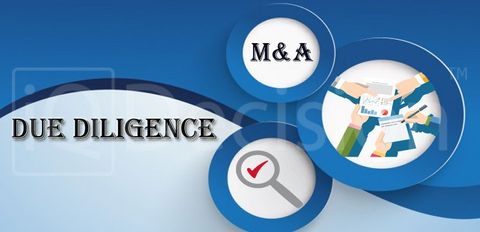Due diligence is becoming increasingly popular among business owners and investors. How to protect yourself, your reputation and your assets during M&A transactions or investing? Due Diligence customers are usually companies that are buying business, merging and acquiring procedures or considering the possibility of participating in an investment project. The procedure is also performed in the case of a joint venture, placement of securities on an exchange, or to verify the reliability of a future partner.
Investors study closely not only the transparency of business processes, but also any negative mentions about the company and its environment. More and more potential buyers are interested in the business background, and, of course, its leader.
In other words, reputation interferes with the success of the deal.
For this reason, you should consider checking the partner before completing a deal or making another important decision. It goes without saying, that due diligence procedure is vital when it comes to international contacts and investment projects.
Less Risks, More Confidence
Due diligence procedure allows to minimize the following possible risks:
- Damage to reputation and image. If a company is caught in corruption or involved in any illegal activity, it will inevitably lose the trust of customers as well as its business partners. Tell me who your friend is, and I'll tell you who you are - not just a saying, it's a business principle. It is bad if the founder of the company hides a connection with people with a bad reputation. Obtaining specific information about such a potential partner can lead to a timely termination of the relationship.
- Financial risks. Even a long-term relationship of trust does not preclude the possibility that the partner is engaged in illegal practices. Liaison with such partners can attract the attention of public services, and lead to other more serious problems.
- Economic risks. If you disclose information about artificial turnovers in advance, the company offered for purchase may significantly fall in price, or even lose interest in the buyer.
- Legal risks. Due diligence may be required by the laws of a particular jurisdiction. Therefore, before M&A proceedings, you should consult with lawyers first.
How to start due diligence check?
The first item in the checklist for due diligence is to check the references of managers, check the reputation and background of each. Negative information in the spirit of "violated traffic rules" is not affected. But it is better if the founder himself tells about it and explains why it happened.
Information about the harassment and antics of management directly affects the decision on the transaction. The logic of the investor is this: if the company has flourished abnormal relationships, they will have to establish a new management. This incurs costs: managerial and reputational, and the asset quickly loses its appeal.
Further, the due diligence procedure is performed in the following areas:
- Check of financial reliability. Check the financial condition, cash flow format, identify risk areas and obtain other important information.
- Verification of commercial reliability. The competitiveness of the company is considered, in particular specific aspects. The actual turnover of the company, contacts, information about the company's interaction with suppliers, customers and competitors, the scale of the business, the developments and their number, and other data are determined.
- Operational reliability check. Carried out in relation to the work processes of the company in question, as their efficiency affects the creation of value. During the expert assessment, the correspondence between the business plan and the real capabilities of the company is determined.
- Tax audit. If the company is still involved in tax litigation, or has not completed the tax audit, it will obviously incur additional costs. Buying a company should also raise questions about cash flow, raising capital, financial structure and real profits.
- Legal reliability test. The structure of the company is inspected, as well as the inspection of subsidiaries, clarification of patent rights and the process of due diligence in the field of intellectual property. The existence of IP disputes can significantly reduce a company's value.
Complex due diligence
Full due diligence procedure should include the audit of the reliability of partners, and a thorough analysis to identify such indicators as:
- inconsistent balance sheets;
- availability of employees or partners associated with officials;
- the presence of companies in well-known tax havens, risk areas, or countries with high levels of corruption;
- non-transparent information about beneficiaries, identification of true beneficiaries, etc.
Unlike an audit, due diligence involves not only obtaining conclusions in the report, but also providing certain recommendations.
Legal Assistance
Private investors rarely conduct due diligence on their own, but use the services of contractors who provide the due diligence report to interested persons. The situation is different with large funds, especially foreign ones. They have their own due diligence team, which attracts outside experts if necessary.
IQ Decision UK experts are ready to provide you with legal advice on due diligence of any complexity, as well as after identifying the issues you are interested in, to provide legal assistance in conducting due diligence in Switzerland, Luxembourg and Liechtenstein.
The list of jurisdictions in which our employees work also includes, but is not limited to, the United States, Panama, the United Kingdom, the Seychelles, and other countries in Europe, Asia, and the Americas. For detailed reference information, please contact the contacts provided in the form below.










